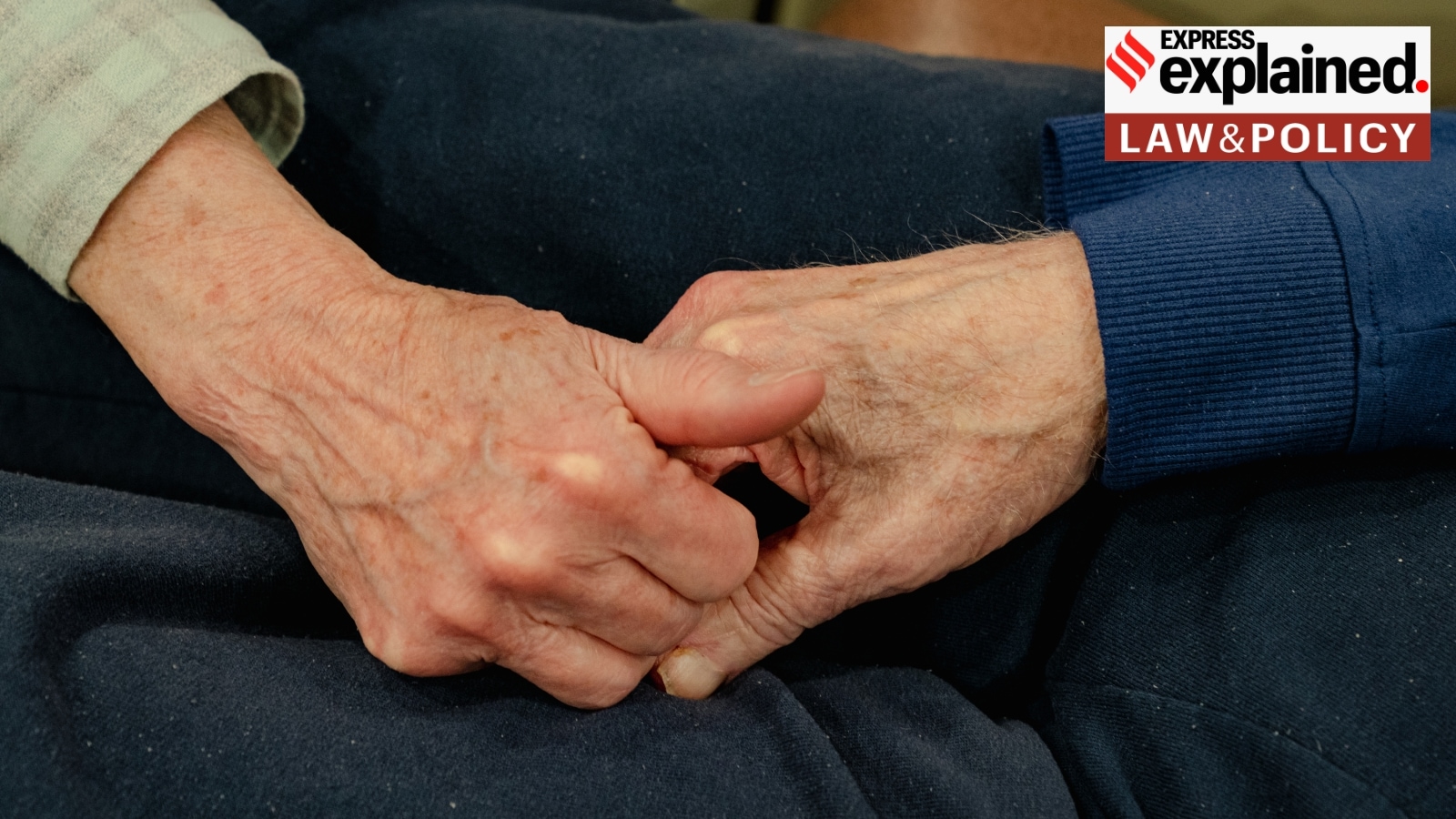What UK’s assisted dying bill says, how it compares to Indian law
The UK House of Commons has voted in favour of the bill which allows terminally ill patients to request assistance to end their own life
 Proponents of assisted dying argue that for terminally ill patients, end-of-life care often offers very little in terms of pain and symptom management. (Representational Image/Shuran Huang/The New York Times)
Proponents of assisted dying argue that for terminally ill patients, end-of-life care often offers very little in terms of pain and symptom management. (Representational Image/Shuran Huang/The New York Times)The House of Commons on November 29 voted in favour of the Terminally Ill Adults (End of Life) Bill. In what was a “free vote”, MPs were permitted to vote according to their conscience instead of following the party line. Eventually, the Bill was backed by a majority of 330 to 275, with 38 MPs not voting.
The Bill allows terminally ill patients — those with little to no hope of recovery from fatal illnesses — to request assistance to end their own life. The Bill will now be sent to a “public bill committee” which will vote on any proposed amendments before being voted on again in the House of Commons. It will then be sent to the House of Lords, where further changes could be made, before a final vote is held.
What led to the introduction of the assisted dying bill? What is the procedure provided in the bill? How does it compare to the law in India?
Current UK position
Assisted dying is the process by which a patient can end their own life with the assistance of a doctor. Euthanasia involves more active involvement of the doctor to end the life of a terminally ill patient. As things stand, the law in the UK does not permit any form of assisted dying or euthanasia, with “assisted suicide” being an offence punishable with up to 14 years in prison.
Since 2013, at least three bills have been introduced to allow assisted dying in the UK. In recent years, the country has seen a complex and polarised debate rage on the issue.
Proponents argue that for terminally ill patients, end-of-life care often offers very little in terms of pain and symptom management. They claim that a law for assisted dying would give the patient a degree of control by allowing them to choose when to end their own suffering in a humane way. They claim that a law would deter people from dying by suicide, or pushing their loved ones to assist with suicide.
Detractors, however, say that the law will be misused, especially when it comes to patients with disabilities. Concerns have been raised that an assisted dying law would allow more vulnerable sections such as elderly persons and persons with disabilities to be coerced or pressured into signing off on their own deaths. Instead of assisted dying, detractors argue that there should be an increased focus on improving end-of-life care.
What Bill says
At the outset, the Bill says that only a terminally ill person above the age of 18 and with the mental “capacity” to make such a decision can request assisted dying. It also says that the patient must be registered, and residing in England or Wales for 12 months before the request.
The Bill defines a terminally ill person as someone who has a worsening illness, disease or medical condition that “cannot be reversed by treatment”, and will result in a death that can “reasonably be expected within 6 months”. It also explicitly excludes persons with disabilities or “a mental disorder”.
A person making an assisted dying request must sign a “first declaration” in the presence of a “coordinating doctor” — a qualified doctor willing to provide such assistance — and another person. The coordinating doctor will then make a “first assessment” to make sure that the patient meets the qualifications to make a request for assisted dying, and has done so voluntarily. If the doctor is satisfied that all these conditions have been met, they will refer the request to a second “independent docto”’ who will make the same determination after an at least seven-day-long “first period of reflection”.
In case the independent doctor refuses to agree with the assessment of the coordinating doctor, the latter may refer the request to another independent doctor (though this can only be done once).
If both the coordinating and independent doctors agree to the request, it is then sent to the High Court of Justice in London where the court will determine if all the requirements have been met to grant the request. The court can hear and question both the patient and the two doctors. If it refuses the request, the patient can challenge the decision before the Court of Appeal. If either the High Court or Court of Appeal grant the request, a “second period of reflection” will begin. After 14 days the patient will be allowed to sign a “second declaration” to confirm their request for assisted dying, witnessed by both doctors and a third person.
The coordinating doctor (or a practitioner designated by them) will then provide the patient with an “approved substance” — the specifics will be provided in a separate regulation. However, the bill states that “the decision to self-administer the approved substance and the final act of doing so must be taken by the person to whom the substance has been provided”. The coordinating doctor is not authorised to administer it themselves.
‘Passive euthanasia’ in India
In 2018, the Supreme Court of India held that the “right to die with dignity” formed a part of the right to life with dignity under Article 21 of the Constitution of India, and recognised the legality of “passive euthanasia” — the withdrawal of life support from terminally ill patients or patients in a “permanent vegetative state”. This allows the patient to die a natural death in the absence of medical interventions, as opposed to the assisted dying bill which gives patients a more active role in choosing when to die.
The SC also provided guidelines to give effect to passive euthanasia, both in cases where the families consent must first be taken or in cases where the patient leaves behind a “living will” or an “advance medical directive” authorising the withdrawal of life support in certain situations.
Among the guidelines was the condition that the living will must be signed in the presence of two witnesses, and signed by a Judicial Magistrate. The guidelines also called for multiple approvals before the terminally ill patient’s case is cleared — from the treating physician, a suitably qualified medical board, and another external medical board, with representation from the local administration.
However, in 2019 the Indian Society of Critical Care Medicine filed an application to modify the guidelines, calling them cumbersome and unworkable. Though the court modified the guidelines in 2023 to introduce strict timelines at each stage and limit the involvement of the Judicial Magistrate, the awareness of these guidelines and their implementation across the country has been limited.
In August 2024 the Ministry of Health and Family Welfare issued draft guidelines (similar to the SC’s guidelines) on the withdrawal of medical support for terminally ill patients and invited feedback from stakeholders before October 20.
- 01
- 02
- 03
- 04
- 05






































